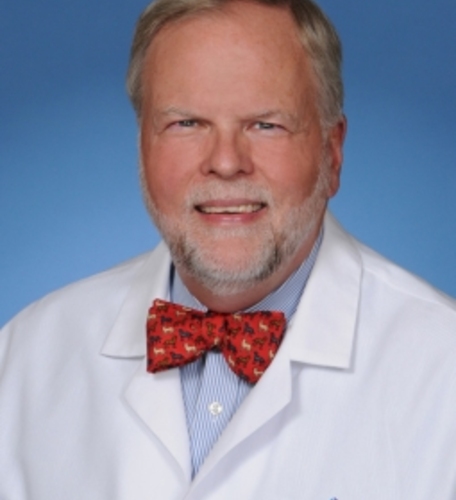
Dr. Rob McDonald — A Champion for Health Care Access
September 15th, 2022
Rob McDonald remembers the first time someone linked an individual’s access to transportation to their health. It was the early 1990s, and McDonald was the medical director for a clinic that served the uninsured and working poor in Knoxville, Tenn.
At a conference at Vanderbilt University, McDonald attended a seminar that he hoped would provide some immediate steps he could take to better serve the community, or perhaps identify some previously unknown solution or resource so that his clinic could help more people.
What he got instead was an in-depth discussion about transportation, and how the lack of public transportation — which is especially acute in smaller cities and rural areas — is one of the biggest challenges people face in improving their health.
“Not many physicians back then were talking very much about barriers to care and issues such as transportation,” McDonald said. “I still remember sitting in that seminar trying to understand what these very intelligent people were talking about.”
Health care professionals today are much more aware of how issues such as transportation and other barriers to care or social determinants of health impact individual health outcomes. And McDonald, in particular, is one of the area’s foremost experts on the subject.
“Few people have done as much to advance the cause of community health and our local approach to addressing health outcomes and the barriers to health that people face than Dr. McDonald,” said Carey Rothschild, Director of Community Health Policy & Strategy for Spartanburg Regional Healthcare System. “He has been a constant source of wisdom, and his ability to build consensus and the support of his physician colleagues has been invaluable.”
Indeed, while AHS has grown from a four-person team to a staff of more than 20, McDonald has been there every step of the way. His passion and leadership was critical in the conceptualization and launch of AccessHealth Spartanburg more than 10 years ago, and he has served on the AHS board ever since. He has chaired AHS’ Physician Advisory Committee and worked to build support for the program within the physician community.
McDonald’s efforts have helped AHS build relationships with primary care and specialist physicians who collectively have expanded access to care to low-income uninsured adults in Spartanburg, Cherokee and Union counties. That care has helped thousands of people improve their health and build stronger, more stable lives for themselves and their families.
It starts with AccessHealth’s approach to assessing and addressing the social determinants of health and the barriers to care that each individual faces. McDonald helped instill that approach from the very beginning as he worked with a small group of SRHS administrators and other community organizations to get AHS off the ground in 2010.
“Renee Romberger (then the SRHS Vice President for Community Health Policy and Strategy), the Road to Better Health organization, St. Luke’s Free Medical Clinic, and others in the Spartanburg community had been meeting and having many discussions about needing to find a way to better serve the uninsured community,” McDonald said. “We didn’t know exactly what that looked like, but we knew there had to be a better way to both provide care to uninsured people and reduce the use of the emergency room (for non-emergency care).”
More than a decade later, AHS stands as a national model, its impact recognized by organizations such as the Robert Wood Johnson Foundation, the American Public Health Association and the Healthcare Leadership Council.
“One of the keys to this work is building a talented, dedicated team and strategic partnerships that allow you to address the vast array of factors that impact health,” said AHS Director Staci Roberts. “You have to have the right people on the bus, and Dr. McDonald has been integral to ensuring that we do. In fact, when it comes to community health in our area, he’s been driving the bus since before AccessHealth was founded.”
And as McDonald looks to the future, he thinks AHS and its partners are well-positioned to make an ever-increasing impact.
“We still have a lot of work to do, but we should all be proud of the progress we have made,” McDonald said. “We’ve come a long way — as a health system and as a community — in our understanding of all the factors that impact health. I know I personally have a much greater understanding of how community and environmental factors are so critical to health than I was when I walked into that conference at Vanderbilt all those years ago. We need to continue the work of addressing those factors, and I am optimistic that we have an excellent team and partnerships in place to do so.”
Supporting Health Care Access
Supports our Entire Community
© 2025 AccessHealth Spartanburg. All Rights Reserved
| Privacy Policy | Cookie Policy|
Site by: ALINE, A Marketing Company
